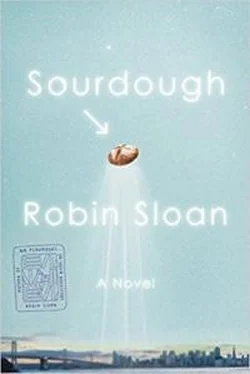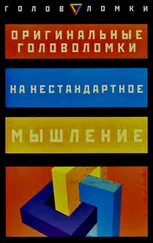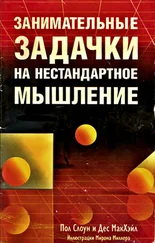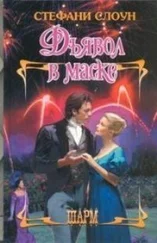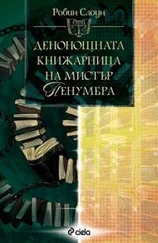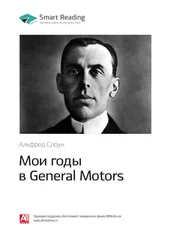“It’s really hard, what you’re trying to do,” I said. “You’re inventing something totally new. Everyone else here, we’re taking things that are established and … putting a twist on them. Even then , it’s impossible. Trust me.”
Jaina Mitra nodded absently. “I think maybe the problem is the molybdoenzymes…”
I walked to Naz’s coffee bar and requested a glass of water to wash the coppery flavor out of my mouth, then sat at the long picnic table to check my email. Replies to my query in the newsletter were accumulating, and in their recommendations they were unanimous. Unequivocal.
Talk to Stephen Agrippa, they said.
Ask Agrippa.
Agrippa the cheese maker.
Agrippa knows more about microbes than anyone.
Agrippa, up on the airfield.
Agrippa, with the goats.
SO, WHAT NEXT? M. wormed his way through the narrow crevice and found a scene from a dream. Inside, the cave was forested with fungus, their stalks as thick around as trees, with fluttering ribs and wobbling tendrils. The wind across the crevice played a whistling song. (Remember this.)
M. knew that mushrooms could be deadly, but what choice did he have? He feasted. And guess what? They were great! The fruits of the cave sustained him.
Weeks later, a sharp-nosed ship ventured close enough to the great rocky island for him to signal, waving his arms atop the precipice from which he might before have jumped. When the ship approached, he climbed aboard and … was immediately pressed into service, a slave once more. He told no one of the cave and its hidden sustenance.
Five years later, he had earned his freedom, and five years after that, he had acquired a ship of his own, slow and leaky, but large enough to carry not only his own small family but also the families of the men beside whom he had rowed and suffered.
This part of the story feels true to me.
AGRIPPA
BEYOND THE OLD HANGARS there was the expanse of abandoned airfield, cracked and overtaken by tall grasses. A line of low, rounded bunkers rose at the asphalt’s edge, and beyond them it was just dark water.
I carried a sample of the Clement Street starter in its original ceramic crock across the broken landscape, the Marrow Fair beneath my feet.
The man and his alpaca were out there guarding their herd.
I approached slowly, both of them watching me as I crossed the concrete.
“Stephen Agrippa?” I called when I was close enough. “We met before … never mind. I work in the market.” I pointed dumbly into the ground. “Everyone said I should talk to you.”
The man nodded slowly at this.
“I have something strange,” I said. “It’s a sourdough starter, but it’s not— Hey!”
A goat was gnawing on my pant leg. I danced away. Agrippa laughed; a high, echoing bark.
“Come on,” he said. “Bring your something strange. Don’t worry about Hercules. He’s cool.” His voice was wry and reedy. He turned and ambled away. I followed, circling wide around the hungry goat and the watchful alpaca, whose name was apparently Hercules.
Agrippa led me toward one of the bunkers, set deep into the ground, its rounded top thick with vegetation, inky green and rusty red. The bunker’s face was a half-moon of white. There was a ramshackle Airstream set up next to it with an awning that extended to one side.
In the shade of the awning, Agrippa reached into a plastic cooler and retrieved two bottles, both unlabeled. He cracked their caps with his molars. “Want one?”
I accepted my beer from the master of microbes and spun the blank bottle. “Home brew?”
“It’s from Algebra, around the way.” He motioned back toward the brewery. “Quintuple-hopped. Experimental. I help ’em out sometimes.”
“People say you’re a microbe whisperer.”
He took a swig from his bottle, looked out across the water. “They do say that. I try to discourage them, but then they ask me what I am , and I can never quite say it right. So then I just shut up.”
“You make cheese.”
He made a deep Mm-hmm , jerked a thumb at the bunker behind him. “That’s the cheese cave. Used to hold nukes.” He took another swig of beer. Grinned. “And now it holds some truly advanced technology.”
A nervous itch spread across my scalp. “Is it safe to be here?”
“Do you drive here in a car?”
“I take Carl’s ferry.”
“Well, it’s safer than that.”
“I mean, is it radioactive?”
“Everything’s radioactive. It’s fine. Mutation’s a good thing.”
I had no idea if he was serious or not. He seemed like the kind of person who cultivated that ambiguity—who reveled in it.
Generally I don’t enjoy those kinds of people.
I hefted the Clement Street starter in its crock and held it out to Agrippa for inspection. He eyed it, then me.
“Oh, I can’t do anything about that.”
“What?”
“You think I’m a sourdough mechanic, and you just drop it off? No, ma’am. I will tell you what I know. How you apply that knowledge to your particular technology there is up to you.”
“You keep calling it technology.”
“Technology it is. Come on. I want you to see the cave.”
* * *
INSIDE THE BUNKER, the air was clammy and dense, heavy with a ripe ammoniac smell. It seemed to crawl up inside my nose and elbow other odors away. The bunker was narrow but deep—deep enough, at least, that the light from the open door did not illuminate the back wall and instead only petered out into darkness.
Wire shelves ran straight down the long space, like an art school demonstration of perspective and foreshortening. The shelves were laden with huge wheels of cheese that I recognized from Orli’s table at the Marrow Fair. They were veined with bright colors: blue and turquoise, flame orange, hot pink.
Agrippa carried a basket under his arm as he walked slowly through the bunker, scanning up and down like a value-conscious shopper scouring the shelves at a grocery store.
“If you sit here in the dark,” he said absently—and it was no stretch to imagine him doing so—“and wait a long time … you see yellow flashes. That’s vitamin B2 fluorescing.”
“And you are one hundred percent sure it’s not dangerous.”
“It’s beautiful.”
That was not a satisfying response.
We passed a shelf where a wheel of cheese had exploded into some kind of fungal overgrowth. Tall, mushroom-like fruiting bodies rose up and swayed slightly in the air disturbed by our passage. I sucked in a sharp breath.
“Is that … there…” I pointed. “Is that all right?”
Agrippa nodded. “Oh, it’s fantastic. An empire is rising, lifting up great works.”
He picked up a wheel on the next shelf, held it close to his nose. Then he fished a tool out of his pocket, some kind of metal syringe, and plunged it into the wheel. He extracted a slender core sample, popped part of it into his mouth. Offered me the other part. I hesitated for a moment, then accepted it. Satisfied, he turned around and headed for the exit.
“ Culture ,” he said. “The word meant this —making cheese—before it meant that —art and opera. And before it meant anything, it just meant working the land. That’s a better definition. That’s who we are. Not our music, our books. Psh , books. They’re all dead. We’re alive. We eat, we grow. But, but but but, here’s the thing! We’re amateurs.”
We emerged back onto the airfield. I was happy to be out of the bunker.
“Amateurs!” Agrippa repeated. “Compared to what you just saw? This is the key to my cheese, to that beer, to your sourdough, to anything and everything. I’m going to say it, and you’re going to nod like you get it, but you won’t. Not yet. It doesn’t come easy.”
Читать дальше
